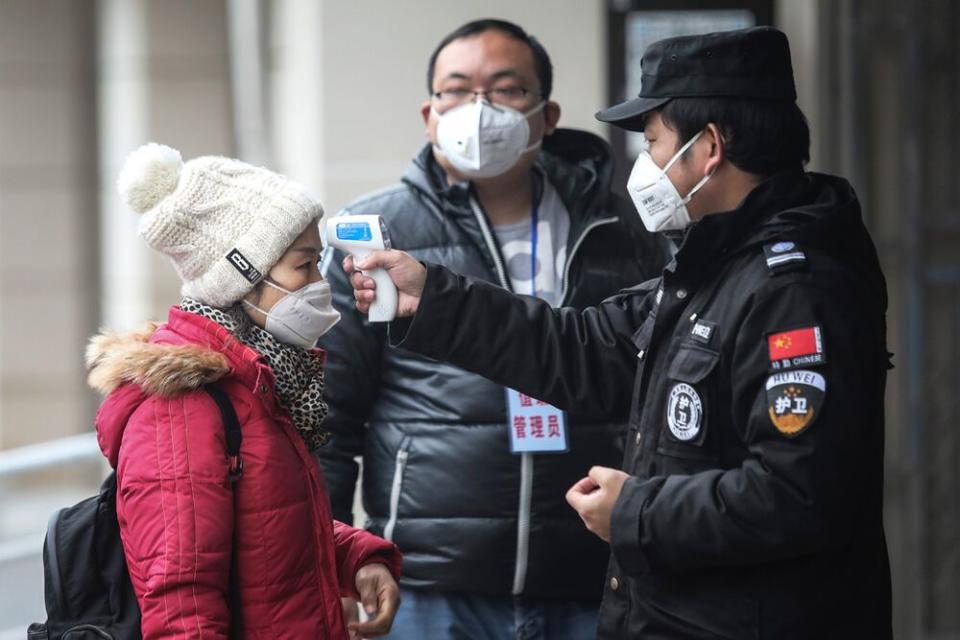What to Know About the Mysterious Coronavirus Spreading in Asia — and How to Protect Yourself

The mysterious, deadly coronavirus has officially come to the U.S.: The Centers for Disease Control announced Tuesday that a man near Seattle contracted the virus after visiting China earlier this month.
The disease has spread quickly in Asia, with around 470 cases of the respiratory infection and 17 deaths, as of Wednesday morning, though the CDC says that the risk for Americans is “low.”
Still, the CDC is stepping up precautions at international airports around the U.S. Travelers coming from China to five airports — San Francisco International Airport, John F. Kennedy International Airport in New York, Los Angeles International Airport, Chicago’s O’Hare International Airport and Hartsfield-Jackson Atlanta International Airport — will undergo “enhanced health screenings” to ensure that they do not have the virus.
RELATED: First U.S. Case of Deadly Coronavirus Confirmed in Washington State
And with questions about the origin of the coronavirus and how easily it spreads still up in the air, it’s important to stay informed and take simple precautions, especially for people with travel plans. Here’s what you need to know.
What is the coronavirus?
Coronavirus is actually a blanket term for several respiratory illnesses, ranging from the common cold to more severe viruses such as SARS, or Severe Acute Respiratory Syndrome. The symptoms typically include trouble breathing, fever, coughing, headache and a sore throat.
According to the CDC, the diagnosed man in Seattle recognized these symptoms after returning from Wuhan, China — the presumed origin of this coronavirus — and tracking the news, and informed his doctor that he may have contracted the illness.

How did it start?
Initially, Chinese health officials believed that this coronavirus was transmitted from animal to human, and they identified a food market in Wuhan with seafood and mammals as the likely source. However, they’ve since determined that it can move from human to human, as people who had no contact with the market have contracted the virus.
RELATED VIDEO: Dartmouth College Student, Sydney Kamen, Develops Life-Saving Program to Fight Ebola and Other Fatal Diseases
Investigators do not currently know how the virus started. They’ve designated it as a “novel coronavirus,” or 2019-nCoV, meaning that it originated in 2019 and is still under investigation.
How does it spread?
Investigators have not yet pinpointed exactly how 2019-nCoV spreads, but coronaviruses typically can be transmitted through the air, from coughing and sneezing, and from touching another person or a surface, such as a table or door handle, with the virus and then touching the mouth, nose or eyes.
RELATED: U.S. to Implement ‘Enhanced Health Screenings’ at 3 Airports Amid Deadly Virus Outbreak in China
“It spreads similar to how other viruses spread — via people being in close contact with someone who is infected,” Nicole Avena, assistant professor at Mount Sinai Medical School, tells PEOPLE. “Airplanes, offices and schools are places where people are near each other and can easily spread the virus from coughing into the air.”

The Chinese government announced Wednesday that they are closing down any travel in or out of Wuhan, which is home to over 11 million people, beginning at 10 a.m. local time on Thursday, The New York Times reported. This comes right before the Lunar New Year holiday in China, the largest travel holiday in the world.
How deadly is it?
For people who have severe cases of 2019-nCoV, it can turn into pneumonia, SARS, kidney failure and death, according to the World Health Organization.
“People with compromised immune systems — the elderly, babies, pregnant women and people with certain medical conditions — are more at risk for complications associated with coronavirus or the flu, so it is best to be mindful if you are or are often around people with these conditions in order to help keep them healthy,” Avena says.
What are the best prevention methods?
Right now, there are no vaccines that can prevent the transmission of this coronavirus, though the CDC said Tuesday that there are “active conversations” going on with the National Institutes of Health about developing a vaccine. For now, the best way people can protect themselves is with basic hygiene. The CDC recommends that people wash their hands often with soap and water, lathering for at least 20 seconds. They also say to avoid people who are sick, and for people to not touch their face with unwashed hands.
Should people be concerned if they’re traveling?
“When traveling, I would be a little more cautious right now, not just because of the coronavirus, but also because of the terrible flu season we are in,” Avena says. “Personally, I am more afraid of the flu than coronavirus.”

